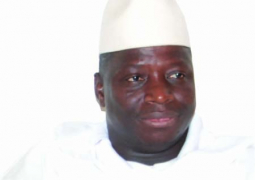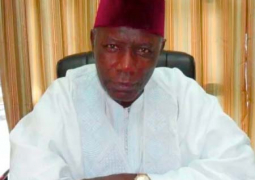US Secretary of State Hilary Clinton has underscored the necessity and importance of preserving and promoting fundamental values such as the freedom of expression and assembly in a world in which the exercise of these rights are increasingly online. Secretary Clinton was speaking last Friday on Internet freedom.
Secretary Clinton's policy address spelt out the administration's strategy for protecting freedom in the networked age of the 21st Century.
Her speech staked out new ground for US foreign policy, in an area where human rights, development, technology, and innovation converge.
Citing the Haiti occurrence as an example, Secretary Clinton noted that "Communication networks have played a critical role in our response."
"And in the hours after the quake, we worked with partners in the private sector; first, to set up the text "HAITI" campaign so that mobile phone users in the United States could donate to relief efforts via text messages. That initiative has been a showcase for the generosity of the American people, and thus far, it's raised over $25 million for recovery efforts," she added.
She further noted that last Monday, a seven-year-old girl and two women were pulled from the rubble of a collapsed supermarket by an American search-and-rescue team, after they sent a text message calling for help. Now, these examples are manifestations of a much broader phenomenon.
"The spread of information networks is forming a new nervous system for our planet. When something happens in Haiti or Hunan, the rest of us learn about it in real time – from real people. And we can respond in real time as well. Americans eager to help in the aftermath of a disaster and the girl trapped in the supermarket are connected in ways that were not even imagined a year ago, even a generation ago."
She said in many respects, information has never been so free, maintaining that there are more ways to spread more ideas to more people than at any moment in history. And even in authoritarian countries, information networks are helping people discover new facts and making governments more accountable.
"There are many other networks in the world. Some aid in the movement of people or resources, and some facilitate exchanges between individuals with the same work or interests. But the Internet is a network that magnifies the power and potential of all others."
Se said there is every reason to be hopeful about what people can accomplish when they leverage communication networks and connection technologies to achieve progress.
According to her, citizens can go into the Town Square and criticize their government without fear of retribution. Blogs, emails, social networks, and text messages have opened up new forums for exchanging ideas, and created new targets for censorship.
The Berlin Wall symbolized a world divided and it defined an entire era. Today, remnants of that wall sit inside this museum where they belong, and the new iconic infrastructure of our age is the internet. Instead of division, it stands for connection. But even as networks spread to nations around the globe, virtual walls are cropping up in place of visible walls.
"As in the dictatorships of the past, governments are targeting independent thinkers who use these tools. In the demonstrations that followed Iran's presidential elections, grainy cell phone footage of a young woman's bloody murder provided a digital indictment of the government’s brutality."
She said that those who use the Internet to recruit terrorists or distribute stolen intellectual property cannot divorce their online actions from their real world identities. "But these challenges must not become an excuse for governments to systematically violate the rights and privacy of those who use the internet for peaceful political purposes."
"The freedom of expression may be the most obvious freedom to face challenges with the spread of new technologies, but it is not the only one. The freedom of worship usually involves the rights of individuals to commune or not commune with their Creator," she continued, adding: "And that's one channel of communication that does not rely on technology. But the freedom of worship also speaks to the universal right to come together with those who share your values and vision for humanity."
She further stated that the internet can help bridge divides between people of different faiths.
She said some nations, however, have co-opted the Internet as a tool to target and silence people of faith.
She observed that these technologies must not be used to punish peaceful political speech, they must also not be used to persecute or silence religious minorities. Now, prayers will always travel on higher networks. But connection technologies like the internet and social networking sites should enhance individuals' ability to worship as they see fit, come together with people of their own faith, and learn more about the beliefs of others. We must work to advance the freedom of worship online just as we do in other areas of life.
According to her, information freedom supports the peace and security that provides a foundation for global progress. Historically, asymmetrical access to information is one of the leading causes of interstate conflict. "When we face serious disputes or dangerous incidents, it's critical that people on both sides of the problem have access to the same set of facts and opinions."
Read Other Articles In Article (Archive)
PAFEG head speaks on project
Feb 7, 2012, 12:31 PM




